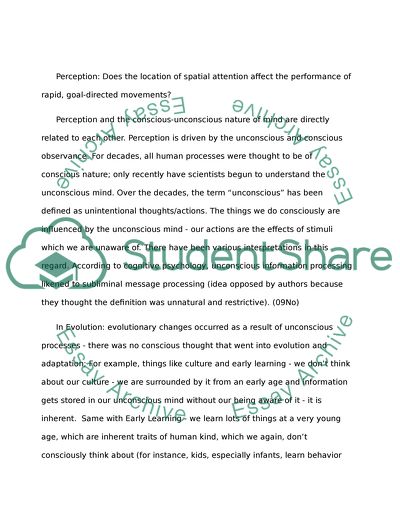Cite this document
(“Perception and Cognition Essay Example | Topics and Well Written Essays - 2000 words”, n.d.)
Perception and Cognition Essay Example | Topics and Well Written Essays - 2000 words. Retrieved from https://studentshare.org/miscellaneous/1524199-perception-and-cognition
Perception and Cognition Essay Example | Topics and Well Written Essays - 2000 words. Retrieved from https://studentshare.org/miscellaneous/1524199-perception-and-cognition
(Perception and Cognition Essay Example | Topics and Well Written Essays - 2000 Words)
Perception and Cognition Essay Example | Topics and Well Written Essays - 2000 Words. https://studentshare.org/miscellaneous/1524199-perception-and-cognition.
Perception and Cognition Essay Example | Topics and Well Written Essays - 2000 Words. https://studentshare.org/miscellaneous/1524199-perception-and-cognition.
“Perception and Cognition Essay Example | Topics and Well Written Essays - 2000 Words”, n.d. https://studentshare.org/miscellaneous/1524199-perception-and-cognition.


